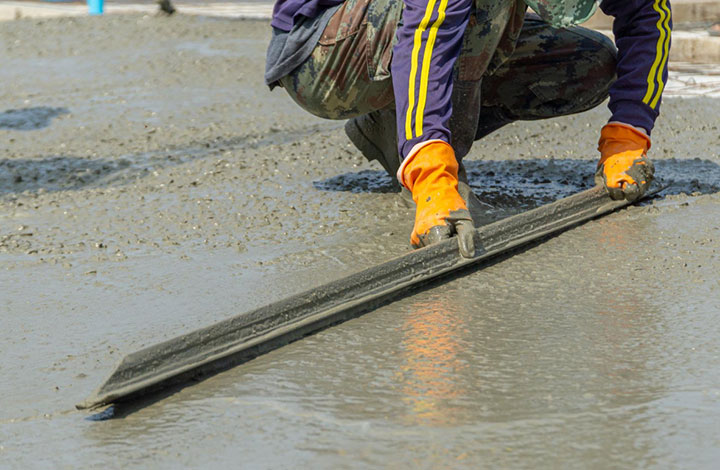Monsoon is a time of heavy rainfall in many parts of the world. While it is crucial for agriculture and maintaining the ecological balance, it can also have a significant impact on the construction industry. Cement and concrete, the two most essential components of the construction industry, are not immune to the effects of monsoon.
Cement is a crucial ingredient in concrete, which is used extensively in construction projects. The quality of cement plays a significant role in determining the strength and durability of concrete. However, during the monsoon, cement can absorb moisture from the air, which can affect its quality. The moisture can react with the cement, causing it to harden before it is used. This can result in the loss of workability and the strength of the concrete, which can lead to structural problems.

Apart from the impact on cement, monsoon can also affect the properties of concrete. Concrete being a porous material, water can seep through the surface cracks and travel through capillary pores and reach the reinforcement embedded in concrete. Once the reinforcement is in touch with water it corrodes and expands thus leads to formation of more cracks in concrete and ingress of more water in concrete. While on one side due to corroded reinforcement the load bearing capacity of concrete is reduced on the other side the chance of seepage increases. The cracks can be a result of the expansion and contraction of the concrete due to temperature and moisture changes. The monsoon can also affect the adhesion properties of concrete, leading to reduced bond strength. As a result, the concrete can separate from the reinforcement, leading to structural issues.
To mitigate the impact of monsoon on cement and concrete, certain precautions need to be taken. One of the most important steps is to store cement bags in a dry place to prevent moisture absorption. The cement should also be covered with a material to prevent it to come in contact of rainwater. Concrete should be protected from rainwater by using covers or temporary shelters. During the monsoon, construction activity should be planned carefully, taking into account the weather conditions. The mixing and placement of concrete should be done during dry periods to ensure that it cures properly. The temperature and humidity should also be monitored during the curing process to ensure that it is done correctly.
If water or moisture is absorbed by the cement, lump is formed in the cement and using this type of can lead to weak concrete, reduced workability and can delay the construction timelines. As a result, construction companies are always searching for solutions to mitigate the impact of monsoon season on their projects. Due to it’s unique packing quality JSW cement absorbs less moisture during monsoon and thus one of the best solution available for construction during this period.
JSW Cement is a leading manufacturer of cement in India and is known for producing high-quality products that are both durable and sustainable. Due to low permeability the concrete made with JSW cement resists water penetration better during monsoon. This reduces the chance of seepage due to water absorption(waterproofing compound). That is why JSW cement is an ideal choice for construction during this season.
In addition to its benefits during the monsoon season, JSW Cement has several other advantages. It is eco friendly cement, as it uses industrial waste like fly ash and slag in its production. This reduces the carbon footprint of the construction project and contributes to sustainable development.
Using JSW Cement is an investment in the longevity of the construction project. By choosing a high-quality cement like JSW Cement, construction companies can ensure that their structures remain intact and durable during the monsoon season. This can help prevent long-term structural damage, which needs expensive repair works.
Additionally, its sustainability and long shelf life make it an environmentally friendly and cost-effective choice for construction projects. Construction companies should consider using JSW Cement for their projects to ensure their structures remain strong and durable during the monsoon season.